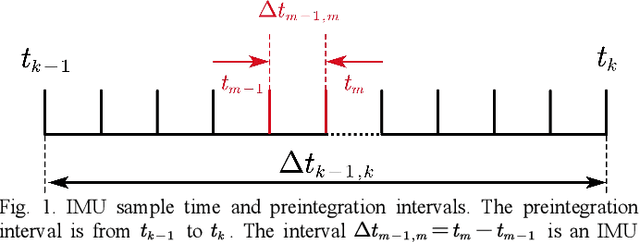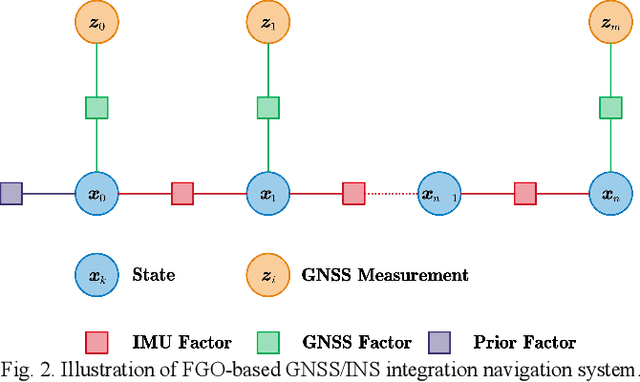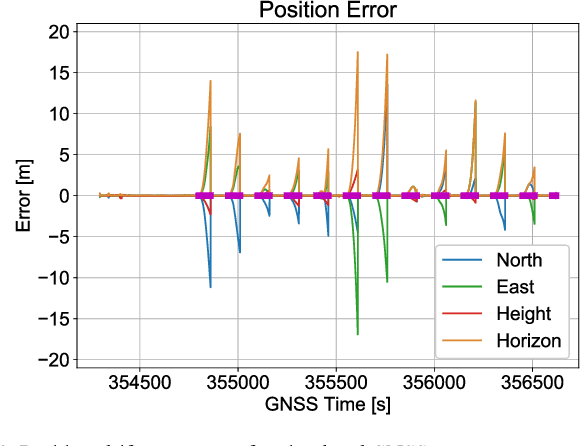Exploring the Accuracy Potential of IMU Preintegration in Factor Graph Optimization
Paper and Code
Sep 07, 2021


Inertial measurement unit (IMU) preintegration is widely used in factor graph optimization (FGO); e.g., in visual-inertial navigation system and global navigation satellite system/inertial navigation system (GNSS/INS) integration. However, most existing IMU preintegration models ignore the Earth's rotation and lack delicate integration processes, and these limitations severely degrade the INS accuracy. In this study, we construct a refined IMU preintegration model that incorporates the Earth's rotation, and analytically compute the covariance and Jacobian matrix. To mitigate the impact caused by sensors other than IMU in the evaluation system, FGO-based GNSS/INS integration is adopted to quantitatively evaluate the accuracy of the refined preintegration. Compared to a classic filtering-based GNSS/INS integration baseline, the employed FGO-based integration using the refined preintegration yields the same accuracy. In contrast, the existing rough preintegration yields significant accuracy degradation. The performance difference between the refined and rough preintegration models can exceed 200% for an industrial-grade MEMS module and 10% for a consumer-grade MEMS chip. Clearly, the Earth's rotation is the major factor to be considered in IMU preintegration in order to maintain the IMU precision, even for a consumer-grade IMU.
 Add to Chrome
Add to Chrome Add to Firefox
Add to Firefox Add to Edge
Add to Edge